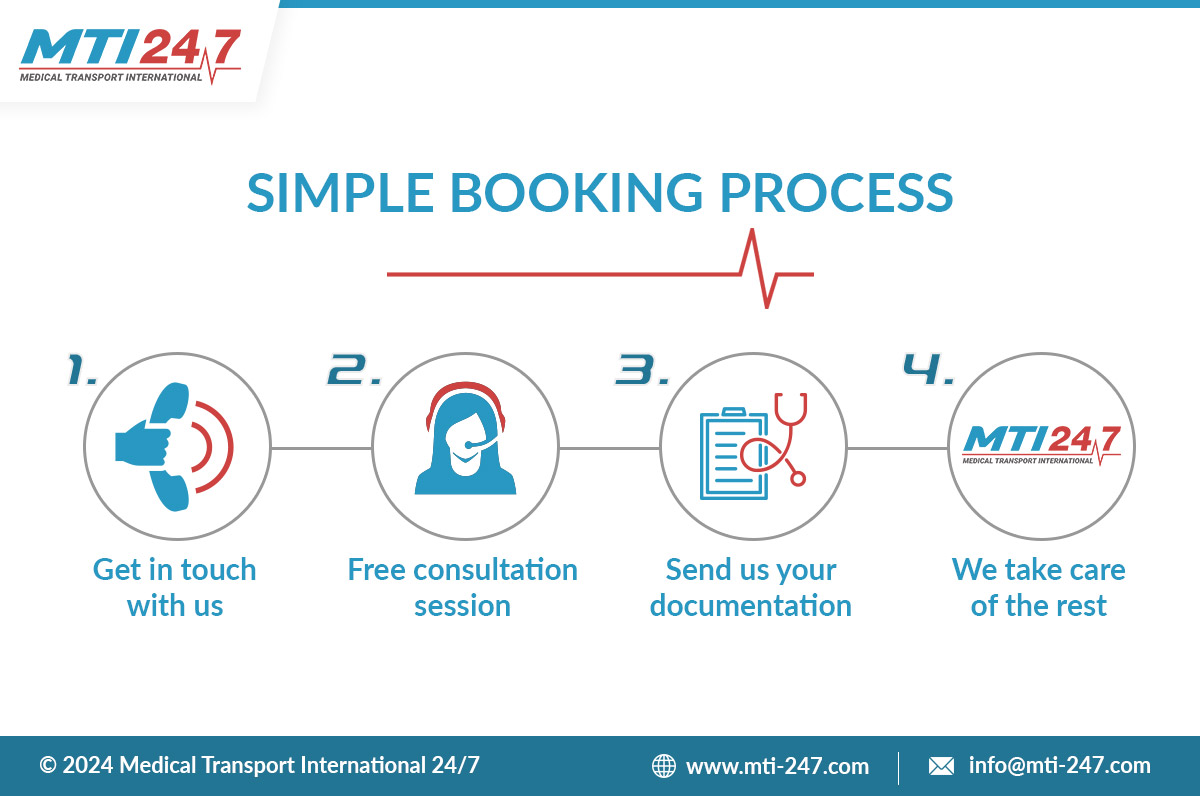That congestion is not just uncomfortable; it is blocking your body's natural pressure relief system. When cabin pressure drops during takeoff, your sinuses need to equalize. But with swollen passages and thick mucus, that equalization becomes impossible. The result? Pain that builds with every passing minute. Should you cancel that flight or are there proven methods to provide relief? This guide reveals the exact techniques that can save your flight experience.
Can you safely fly with a sinus infection?
Flying with a sinus infection is possible but risky. Blocked sinuses cannot equalize pressure during altitude changes, leading to severe pain, potential eardrum rupture, and other serious complications that worsen throughout the flight.
Strategic preparation significantly reduces flight risks. Starting decongestants 24-48 hours early, using saline rinses, staying hydrated, and timing medications properly can make the difference between manageable discomfort and medical emergencies.
Professional medical support ensures safe transport. MTI 24/7's medical escorts and air ambulance services provide specialized care for high-risk patients, preventing complications and managing severe sinus-related emergencies during travel.
What is sinus infection?
A sinus infection occurs when your nasal cavities become inflamed and swollen, trapping mucus and creating the perfect breeding ground for bacteria or viruses. This inflammation blocks the tiny drainage passages that normally keep your sinuses clear and functioning.
The condition manifests through several distinct indicators:
Dental pain: upper teeth may ache due to sinus pressure.
Persistent headaches: often worsening when you bend forward.
Fatigue and general malaise: your body fights the infection constantly.
Thick, discolored nasal discharge: yellow or green mucus that will not clear.
Reduced sense of smell and taste: your sensory perception becomes dulled.
Nasal congestion: complete or partial blockage that makes breathing difficult.
Facial pressure and pain: particularly around your forehead, cheeks, and between your eyes.
Left untreated, sinus infections can escalate into serious complications. The infection may spread to surrounding areas, affecting your ears, throat, or in rare cases, reaching brain tissue through connected pathways. Chronic sinusitis can develop when acute infections persist, leading to permanent structural damage and recurring episodes.
Treatment approaches vary depending on the infection's severity and cause. Bacterial infections typically require antibiotics, while viral sinusitis responds better to supportive care including decongestants, saline rinses, and pain management. Severe cases may need surgical intervention to restore proper drainage.
MTI 24/7 recognizes that this seemingly simple infection creates complex challenges for air travelers, as your compromised sinus system cannot handle the pressure changes that healthy passengers barely notice.

Can you fly with a sinus infection?
Flying with a sinus infection is medically possible but comes with significant risks that many passengers underestimate. Your decision should depend on the severity of your symptoms and your ability to equalize pressure during altitude changes. The key lies in distinguishing between manageable discomfort and potentially dangerous complications.
Several factors determine when flying with a sinus infection remains feasible:
No severe facial pain: manageable discomfort indicates less inflammation.
Successful decongestant response: medications effectively reduce swelling.
Recent symptom improvement: recovery trends suggest your condition is stabilizing.
No fever or severe headache: absence of systemic symptoms reduces complication risks.
Ability to breathe through your nose: even partially open airways help pressure balance.
Mild congestion with clear drainage: minimal blockage allows some pressure equalization.
Certain conditions make flying dangerous and should prompt trip cancellation. Complete nasal blockage prevents any pressure equalization, turning descent into an excruciating ordeal that can damage your eardrums or sinuses permanently. High fever indicates active infection that air travel will worsen, while severe facial pain suggests inflammation levels that altitude changes will amplify beyond tolerance.
Chronic sinusitis sufferers often fly successfully with proper preparation, while acute infections in their peak inflammatory phase pose the highest risk. Your symptoms on departure day matter more than your diagnosis. Listen to your body's current state rather than pushing through based on travel commitments.
MTI 24/7 advises that the decision ultimately rests on honest symptom assessment, not wishful thinking about improvement during your journey.
What are the risks of flying with a sinus infection?
Flying with compromised sinuses transforms normal cabin pressure changes into a medical challenge that can cause lasting damage. Your inflamed passages cannot respond to altitude variations like healthy tissue, creating a cascade of painful complications that intensify throughout your flight. The risks extend far beyond temporary discomfort and can result in serious injury.
Flying and sinus pressure
Cabin pressure drops rapidly during ascent, forcing air trapped in your blocked sinuses to expand with nowhere to escape. This creates intense pressure buildup that pushes against inflamed tissue, causing excruciating pain that builds progressively. During descent, the reverse occurs; external pressure increases while your congested sinuses cannot equalize, creating a vacuum effect that can rupture delicate membranes. Passengers describe this sensation as feeling like their head might explode, with pressure so intense it becomes impossible to think clearly.
Sinus headache during flying
The headache you experience during flight differs dramatically from ground-level sinus pain. Altitude changes amplify existing inflammation, creating throbbing pain that radiates from your forehead through your entire skull. This is not your typical sinus headache; it is a relentless, building pressure that peaks during descent and can persist for days after landing. Many passengers find standard pain relievers completely ineffective against this altitude-induced agony.
Nasal congestion and flying
Your blocked nasal passages become a liability at altitude, preventing the natural airflow that normally equalizes pressure. Swollen tissues that seem manageable on the ground become impermeable barriers when cabin pressure fluctuates. This complete blockage forces pressure to seek alternative pathways, often damaging your eardrums, sinuses, or surrounding structures. The congestion typically worsens during flight as dry cabin air further irritates already inflamed tissues.
Additional risks of flying with sinus infection:
Sleep disruption: pain and pressure prevent rest during long flights.
Dizziness and vertigo: pressure imbalances affect your inner ear's balance system.
Eardrum rupture: extreme pressure differences can tear your tympanic membrane.
Middle ear infection: bacteria from sinuses can spread through connected passages.
Tooth pain: sinus pressure radiates to upper molars, causing severe dental discomfort.
Worsened infection: stress and altitude changes can intensify bacterial or viral activity.
Nosebleeds: dry cabin air combined with inflamed tissues causes spontaneous bleeding.
Temporary hearing loss: fluid buildup and pressure changes can muffle hearing for days.
Medication complications: altitude can alter how decongestants and pain relievers work.
MTI 24/7 has witnessed passengers require emergency medical attention due to severe barotrauma caused by flying with active sinus infections; injuries that could have been prevented with proper assessment.
Proven sinusitis flying strategies that actually work
Successfully flying with sinusitis requires strategic preparation and precise timing of interventions throughout your journey. These evidence-based techniques can mean the difference between manageable discomfort and emergency medical situations. Your preparation begins days before departure, not at the airport gate.
Essential pre-flight preparation maximizes your chances of comfortable travel:
Sleep elevated the night before: reduce overnight congestion buildup.
Stay hydrated: thin secretions naturally and counteract dry cabin air effects.
Use saline nasal rinses twice daily: flush out thick mucus and reduce bacterial load.
Avoid alcohol and caffeine: both substances worsen dehydration and inflammation.
Pack backup medications: bring extra decongestants, pain relievers, and nasal sprays.
Start decongestants 24-48 hours early: allow medications time to reduce inflammation before pressure changes.
During flight, active management prevents complications from developing:
Breathe through mouth if necessary: do not force blocked nasal passages.
Apply warm compresses to face: use heated towels from flight attendants.
Chew gum or swallow frequently: activates muscles that open eustachian tubes.
Perform Valsalva maneuver gently: pinch nose and blow softly to equalize pressure.
Stay upright during descent: avoid sleeping when cabin pressure changes most rapidly.
Use nasal decongestant spray 30 minutes before takeoff: maximum effectiveness during ascent.
Post-flight recovery requires continued vigilance to prevent complications. Monitor your symptoms for 48 hours, as some pressure-related injuries do not manifest immediately.
MTI 24/7 emphasizes that these techniques work best when your infection is mild. Severe sinusitis may require postponing travel regardless of preparation quality.
Medical escort services: When sinus infections require professional flight support
MTI 24/7's medical escort service provides trained healthcare professionals who accompany patients during air travel, ensuring continuous medical monitoring and prompt intervention when complications arise. This specialized service transforms potentially dangerous flights into medically supervised journeys with professional oversight throughout your entire travel experience.
Our medical escort services become essential when your sinus infection presents specific risk factors that standard passenger care cannot address:
Compromised immune system: cancer patients, elderly, or immunosuppressed individuals.
Previous severe reactions to altitude: documented history of extreme pain or injury during flight.
Recent sinus surgery within 2-4 weeks: healing tissues extremely vulnerable to pressure changes.
Multiple medical conditions: diabetes, heart disease, or respiratory issues combined with sinusitis.
Inability to perform pressure equalization techniques: physical limitations or cognitive impairment.
High-risk medications: blood thinners or immunosuppressants that complicate infection management.
Severe chronic sinusitis with previous flight complications: history of barotrauma or emergency landings.
Our medical escorts provide multiple benefits tailored specifically for sinus infection patients. They monitor your symptoms continuously, administer medications at optimal timing intervals, and perform professional nasal care techniques that exceed standard passenger capabilities. Most importantly, they recognize early warning signs of barotrauma and can coordinate emergency medical responses if complications develop during flight.
The service includes pre-flight assessment of your current infection status, real-time pressure equalization assistance, and post-flight monitoring to ensure no delayed complications emerge. Our escorts carry authorized equipment including portable suction devices, advanced decongestants, and emergency communication tools to coordinate with ground medical teams.
MTI 24/7's medical escorts have prevented numerous sinus-related flight emergencies, turning high-risk journeys into safely managed medical transports with professional care every step of the way.
Air ambulance services: Critical transport for severe sinus complications
MTI 24/7's air ambulance service operates fully equipped medical aircraft with intensive care capabilities, providing life-saving transport when ground-based travel becomes medically impossible. Our medical jets feature advanced life support systems, specialized medical teams, and the ability to maintain sea-level cabin pressure to prevent further complications during transport.
Air ambulance transport becomes necessary when sinus infections escalate beyond standard medical management:
Meningitis complications: sinus infection breaching into brain tissue or spinal fluid.
Cavernous sinus thrombosis: life-threatening blood clot formation behind the eyes.
Respiratory compromise: severe swelling blocking airways and threatening breathing.
Severe sepsis from untreated sinusitis: systemic infection requiring ICU-level monitoring.
Massive epistaxis (nosebleeds): uncontrolled bleeding requiring emergency surgical control.
Post-surgical emergencies: complications from sinus surgery requiring specialized transport.
Orbital cellulitis development: infection spreading to eye socket requiring surgical intervention.
Our air ambulances provide unparalleled advantages to critically ill sinus patients. The pressurized cabin maintains ground-level atmospheric conditions, eliminating the pressure variations that worsen sinus complications during transport. Onboard medical teams include specialists trained in managing severe head and neck infections, with access to advanced airway management, surgical equipment, and direct communication with receiving hospitals.
Each aircraft carries specialized ENT emergency equipment including fiber-optic scopes, portable CT imaging capabilities, and advanced hemostatic agents for bleeding control. Our medical crew can perform emergency procedures mid-flight, including advanced airway management if respiratory compromise develops during transport.
Time-critical sinus emergencies require swift action, and MTI 24/7's air ambulance service provides the fastest possible transport while maintaining the highest level of medical care throughout your journey to definitive treatment.
Contact us to fly safely with a sinus infection!
 MTI 24/7's experienced medical team has safely transported thousands of passengers with sinus complications, turning potentially dangerous flights into professionally managed journeys. Whether you need expert guidance, medical escort services, or air ambulance transport, our specialists understand exactly what your condition requires. Contact MTI 24/7 for your personalized transport solution.
MTI 24/7's experienced medical team has safely transported thousands of passengers with sinus complications, turning potentially dangerous flights into professionally managed journeys. Whether you need expert guidance, medical escort services, or air ambulance transport, our specialists understand exactly what your condition requires. Contact MTI 24/7 for your personalized transport solution.
Reach us by:
Phone: USA: +16468635532 / UK: +442036080959
Email: info@mti-247.com
Our contact form
:quality(75))
:quality(75))